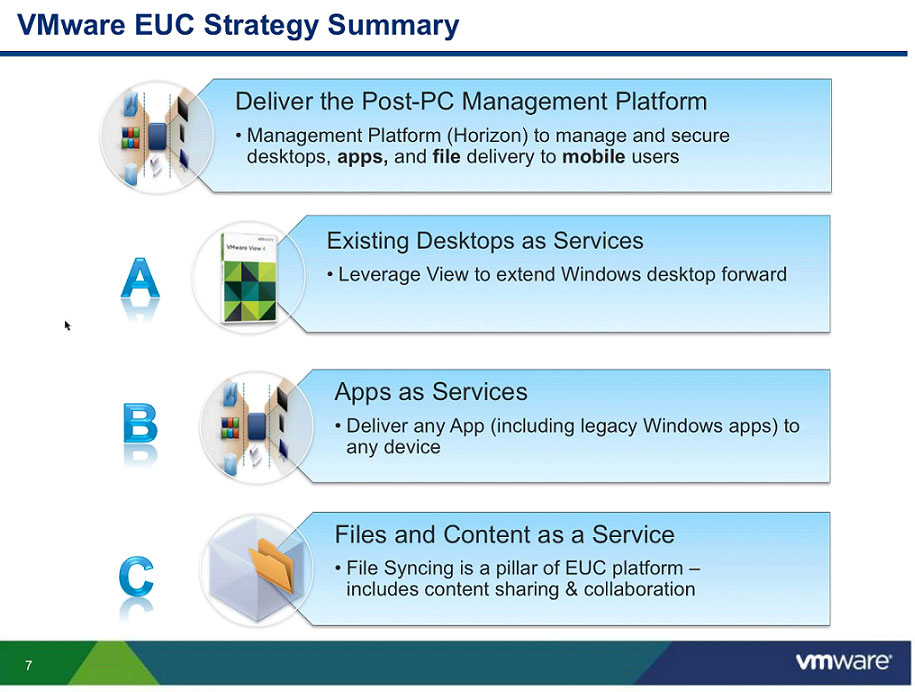VMware revamps end-user portfolio

VMware has launched VMware View 5.1 and a series of tools, designed to give it a leg up in the desktop virtualisation market.
The company essentially revamped its end-user product portfolio, including tools for centralised management and an effort called "Project Octopus", which aims to challenge Dropbox.
VMware View 5.1 is the flagship effort, but the company also launched Horizon Applications Manager 1.5, which aims to manage infrastructure and dish applications out to workers.

(Credit: VMware)
With VMware View, the company is looking to create a desktop virtualisation experience that is as personal and as fast as local storage. Vittorio Viarengo, vice president of marketing for end-user computing, said VMware has cut the latency to the point where it's "hard to distinguish between the local and remote desktop". VMware said that it:
- Optimised the storage in VMware View and added persona management so a user can preserve their settings on Windows devices and even keep their wallpaper. Viarengo said that "anything that makes the desktop yours will be overlaid on a clean image"
- Simplified management for provisioning configuration management, and policy enforcement
- Set VMware View so it works with multiple clients ranging from Apple's iPad and desktops to Android devices and Amazon's Kindle Fire
- Integrated VMware View with its vCenter Operations software.
Meanwhile, VMware is positioning the Horizon Applications Manager as a "personal cloud broker" that can dish out software to end users on diverse devices. Ben Goodman, lead evangelist for VMware Horizon, said that the company has been "laser focused on SaaS apps and web apps and getting them to different devices".
(Credit: VMware)
As for Project Octopus, VMware appears to be going after Dropbox as well as Box. It plans to offer storage, data sharing and collaboration with a twist. Instead of data going to Dropbox or Box, information will reside in corporate "datacentres".
Via ZDNet